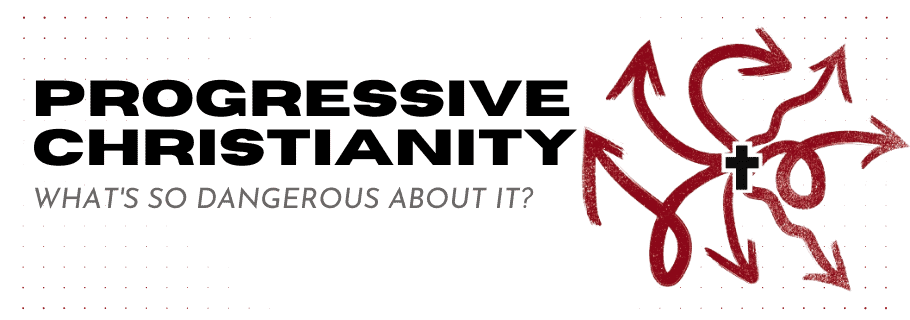This sponsored post was provided by Nelson Books and is adapted from Allen Parr’s book Misled: 7 Lies That Distort the Gospel (and How You Can Discern the Truth).
The origins of progressive Christianity are complex. The movement embraces some aspects of liberal Christianity, which can be traced back to both Enlightenment-era rationalism and the Romanticism of the eighteenth and nineteenth centuries. While progressive Christianity shares some features of the social gospel movement of the late nineteenth and early twentieth centuries, it can also be seen as a reaction against it.
The progressive Christian movement says that the church needs to revisit and adjust its methods, practices, and beliefs as the culture changes. In other words, the church should conform to culture rather than holding to the transformative power of the gospel to point culture to Jesus.
Progressive Christianity largely borrows from postmodernism. What is postmodernism? Maybe the easiest way to answer that question is to compare it with modernism. Modernism of the 18th and 19th centuries focused on rational inquiry and empirical evidence. Modernists were optimistic that science and philosophy could explain just about everything; however, when innovation and scientific advancements did not result in a global utopia, postmodernism came in as a reaction against that optimism and questioned the very nature of truth.
Have you ever heard people talk about “my truth” or “your truth,” as if the truth is little more than an individual opinion? That’s postmodernism talking. Have you ever noticed that tolerance and open-mindedness are lifted as the highest virtues, while people who claim certainty (especially about morality) are treated with suspicion or even shouted down? That’s postmodernism talking too.
It’s with this post modern backdrop that progressive Christianity justifies a relaxed acceptance of sin and the affirmation of all world religions as true. Perhaps the most dangerous tendency of progressive Christians is their rejection of the atoning work of Jesus on the cross.
modern backdrop that progressive Christianity justifies a relaxed acceptance of sin and the affirmation of all world religions as true. Perhaps the most dangerous tendency of progressive Christians is their rejection of the atoning work of Jesus on the cross.
Many people throughout history have affected “change or transformation in individuals” through “enlightenment, forgiveness, wholeness” and so on. Some would say that about Oprah Winfrey, Mahatma Gandhi, or the Dalai Lama. This description doesn’t distinguish the work of Jesus from the work of any other humanitarian, teacher, or leader. Jesus’ death is said to be simply the ultimate picture of self-giving love, “not as a sacrifice needed to gain approval or forgiveness by God.”
It doesn’t get plainer than that. Progressives do not see what Jesus did on the cross as achieving God’s forgiveness for our sin but rather as “a model for all to follow.”
To suggest that salvation was not a major emphasis for Jesus, or the gospel writers is a huge stretch. But even if that were true, other New Testament writers certainly focused on salvation, which showcases the cherry-picking tendencies of progressive Christianity to water down gospel to relativism rather than transformative truth.
Learn more about Misled and order your copy today.
About Allen Parr:
Allen Parr is a national speaker, YouTuber, author, ordained minister, husband, and father. He is the cofounder (with his wife, Jennifer) of Let’s Equip, a nonprofit organization that equips Christians and Christian organizations with courses and curriculum to aid in biblical literacy and spiritual growth.
Allen is a proud graduate of Dallas Theological Seminary, where he earned his master of theology degree in 2004. He has served on staff at several churches in various positions, including worship pastor and pastor of Christian education. His popular YouTube channel, The BEAT (Biblical Encouragement And Truth) with Allen Parr, reaches millions of believers with encouragement to live out their true calling as Christians.
Allen is also a national speaker and gifted communicator of the word of God and has a passion for equipping other content creators utilize digital media to fulfill the great commission. He and Jennifer and their two children live in Texas.










